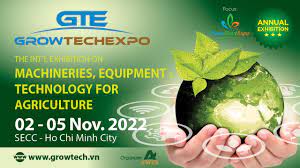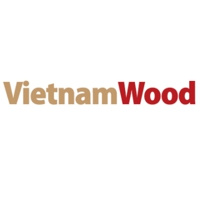- Read all
- Rice
- Fisheries
- Cassava
- Fertilizer & Pesticide
- Coffee
- Animal Feed
- Cocoa
- Seed
- Tea
- Wood
- Pepper
- Agricultural Cooperations
- Cashew
- Agricultural Investments
- Rubber
- Governmental Policies
- Sugarcane
- Agricultural Startup Ecosystem
- Corn
- Technological Innovations
- Spices
- Organic Agriculture
- Bean
- Food Manufacturing
- Fruit & Vegetable
- Agricultural Value Chain
- Flower
- Water & Waste Management
- Meat
- Processed Food
- Dairy
- Plant Originated Products
- General Agro Commodities
- Animal Originated Products
Seed company blends Asian, European heritage
March 22, 2016
A seed company formed by Dutch agriculturist Simon Groot and Filipino trader Benito Domingo in 1982 has become a multi-cultural organization with over 4,000 employees who provide high-quality vegetable seeds to 30 million farmers across the globe.
Initially called Hortigenetics Philippines Inc., the company was renamed East-West Seed Company Inc. as an evidence that a partnership between a European and Asian could succeed. Its goal was to blend European style seedsmanship with Asian tropical vegetables.
From its early work in the Philippines, the company expanded to include breeding programs in Thailand, Indonesia, Vietnam, India, China and other Asian countries.
Today, East-West Seed Company distributes high-quality vegetable seeds in about 60 countries worldwide. From Africa to Asia, Australia to America, East-West Seed provides farmers better seeds for better yields.
East-West Seed currently leads the ranking of seed companies in two of three indices under the Access to Seeds Index which was published for the first time this year.
The index measures and compares the efforts of the world’s leading seed companies to enhance the productivity of smallholder farmers.
The index was published by the Access to Seeds Index Foundation, an independent organization funded by the Bill & Melinda Gates Foundation and the Dutch government. It aims to improve farmers’ access to a wider array of modern, more productive seed varieties by bridging the gap between seed companies and the smallholder farmer.
Improving smallholder farmers’ access to quality seeds is a crucial first step to achieve the goal of feeding the world sustainably.
Bill Gates, speaking at a recent forum on innovation, emphasized the importance of agriculture in achieving global prosperity. “Over 70 percent of the poor people in the world are farmers. They have small plots of land, very little information, seeds that are very old, not much credit, and they’re just getting by. The changes in the weather in the future will make things even tougher for them. Every country that has gone to prosperity has raised their agricultural productivity pretty dramatically,” said Gates.

East-West Seed breeds tropical vegetable crops that are adapted to local markets and growing conditions.
It is estimated that by 2050, the world needs 70 percent more food to feed a population of nine billion, in an environment where less water and land is available. The only way to achieve this is by increasing farm productivity, more yield from less land and resources, and a more environmentally sustainable way of producing food.
Ido Verhagen, executive director of the Access to Seeds Foundation said: “We recognize that smallholder farmers represent an untapped opportunity to meet the challenge of global food security. Providing them access to quality seeds unlocks their potential to produce more food for the growing global population.”
East-West Seed leads the ‘Global Index for Vegetable Seed Companies’ and ‘Regional Index for EasternAfrica’. The index cites East-WestSeed’s commitment to small holder farmers,which is evident in all aspects of its business, including packaging, distribution, customer service, research and development, knowledge transfer and innovation.
According to the report, East-West Seed prioritizes the needs of smallholder farmers in the development of both local and global crops.
East-West Seed chief executive Bert van der Feltz said: “We are grateful to the Access to Seeds Foundation for putting smallholder farmers in the center. The index is an important barometer of the seed industry’s impact on smallholder farmers. They have been the driver of our business since East-West Seed was founded in 1982. It is important to assist them because they are the key to improving worldwide access to nutritious food, and they contribute to economic growth,” he said.
“When we do this, we achieve several goals at the same time: the farmer’s income increases, consumers have access to high quality vegetables, and we build an attractive and profitable seed business,” said van der Felts.
East-West Seed’s company mission is to improve the income and livelihoods of smallholder farmers. Its unique approach to business includes local breeding which caters to local demand and conditions, resulting in >800 varieties of 37 vegetable crops; local extension workers who train farmers in improved growing techniques in the Philippines, Thailand, Myanmar, India, Cambodia, Vietnam, Indonesia, Tanzania and in several West African countries; and availability of small seed packages (about $1 per pouch) which are suited to small farmers with less than 2 hectares of land, representing 85 percent of the world’s farm holdings.
East-West Seed breeds tropical vegetable crops that are adapted to local markets and growing conditions.
The index ranks individual companies on their efforts to enhance access to seeds. East-West Seed outperforms all other companies in five measurement areas: public policy and stakeholder engagement, research and development, marketing and sales, capacity building and local seed sector advancement.
East-West Seed introduced market-oriented plant breeding in Southeast Asia in 1982 by focusing on local markets and local needs.
Today, East-West Seed is the leader for tropical vegetable seeds in Asia and beyond. It holds leading market positions in Thailand, the Philippines, Indonesia, Myanmar and Sri Lanka. It has also expanded its business activities in India, Vietnam, China, Latin America and Africa. East-West seeds are planted in the fields of 30 million farmers worldwide.
It produces and markets a wide portfolio of hybrid and open-pollinated seeds. The seeds are produced on over 6,000 hectares of land in Thailand, the Philippines, India, Indonesia, Vietnam and Myanmar, employing 12,000 contract growers producing 3.8 million kilograms of seeds.
Khoa Le
Source: The Standard
Related news
-
To climate-proof our food supply, go where the wild things are
Any views expressed in this article are those of the author and not of Thomson Reuters Foundation. Species that survive in the wild are tough. This doesn’t just apply to wild animals; wild relatives of crops have a whole host of traits that make them stronger than their common cousins that we know as the fruits, roots and vegetables we eat. As the effects of climate change tighten their grip on our food supply, and higher temperatures and erratic rains make it harder for the world’s farmers to grow the food we demand, we need to lean on these wild species. We need them to be available for plant scientists to use, to breed more resilient crops.
March 22, 2016 -
Branding to add more value
British filmmaker and trade envoy David Puttnam has a long connection with Cambodia. The producer of the 1984 film The Killing Fields, he has returned frequently to the country as the UK Prime Minister’s Trade Envoy to Vietnam, Laos and Cambodia. He recently sat down with the Post’s Cheng Sokhorng to discuss the role and importance of branding Cambodian products to increase their value and market penetration overseas.
March 18, 2016 -
Inspiring stories in April issue of Agriculture mag
Watch for the April 2016 issue of Agriculture magazine and get inspired by the success stories from Vietnam as well as from the local front. From Vietnam, you will read about how they manage to produce big volumes of jackfruit for export as well as for their local market. In dragon production, they really undertake large scale projects. In one place in Long An province, for instance, no less than 800 hectares are devoted to dragon fruit production in one contiguous place.
April 5, 2016 -
Our Coffee Addiction Could Destroy Earth’s Tropical Forests
Coffee producers may need a wake-up call. Soaring demand for the caffeinated brew could hasten destructive climate change by encouraging producers to chop down some of the last remaining tropical forests as they struggle to increase yields on existing farmland, according to a report released Thursday by the nonprofit Conservation International. Coffee grows in tropical countries near the equator, such as Indonesia, Brazil and Uganda, where thick jungles rich with biodiversity provide fresh water and store tons of carbon. Farmers expand their fields by felling trees in these forests and burning the dense underbrush — releasing that carbon into the atmosphere, where it traps other gases and warms the planet. As a result, deforestation is a twofold environmental catastrophe: Left intact, forests absorb many of the pollutants that cause global warming. Destroyed, they unleash even more emissions and speed up the pace of climate change.
April 20, 2016
Events See more

Vietnamplas 2022 - Vietnam International Plastic and Rubber Industry Exhibition
23-03-2023 - 26-11-2022 09:00 - 17:00
Saigon Exhibition and Convention Center (SECC) – 799 Nguyen Van Linh Boulevard, District 7, City. Ho Chi Minh.

GROWTECH EXPO - FLORAPLANTEXPO 2021
02 - 05-11-2022 09:00 - 17:00
Saigon Exhibition and Convention Center (SECC) – 799 Nguyen Van Linh Boulevard, District 7, City. Ho Chi Minh.

VTG 2022
18 - 25-10-2022 09:00 - 17:00
Saigon Exhibition and Convention Center (SECC) – 799 Nguyen Van Linh Boulevard, District 7, City. Ho Chi Minh.

VIETSTOCK 2022 - SPECIALISED EXHIBITION OF LIVESTOCK, FEED AND MEAT PROCESSING IN VIETNAM
12 - 14-10-2022 08:00 - 17:00
799 Nguyen Van Linh, Tan Phu Ward, Dist. 7, Hochiminh City, Vietnam

VTG 2022
21 - 27-09-2022 09:00 - 17:00
Saigon Exhibition and Convention Center (SECC) – 799 Nguyen Van Linh Boulevard, District 7, City. Ho Chi Minh.
.png)
VIETFISH 2022
22 - 26-08-2022 09:00 - 17:00
Saigon Exhibition and Convention Center (SECC) – 799 Nguyen Van Linh Boulevard, District 7, City. Ho Chi Minh.
Business Opportunities See more
-
BURANI INTERFOOD is looking for Buyers in Vietnam
Type:
November 22, 2021
-
BURANI INTERFOOD is looking for Buyers in Vietnam
Type: Wholesaling Meat
November 22, 2021
-
BURANI INTERFOOD is looking for Buyers in Vietnam
Type: Wholesaling Meat
November 22, 2021
-
BURANI INTERFOOD is looking for Buyers in Vietnam
Type: Wholesaling Meat
November 19, 2021
-
BURANI INTERFOOD is looking for Buyers in Vietnam
Type:
November 19, 2021
-
Indian purchaser looking for high quality cashew nut kernel from Vietnam
Type: Exporting Cashew
Mar 14, 2016
534
Limitless database of qualified and verified agricultural partners
124
Exclusive buy & sell leads on specific agricultural commodities
24
Agricultural events in Vietnam and Asia Pacific region
Stay informed!
Enter your email address below to receive updates each time we publishes new content
